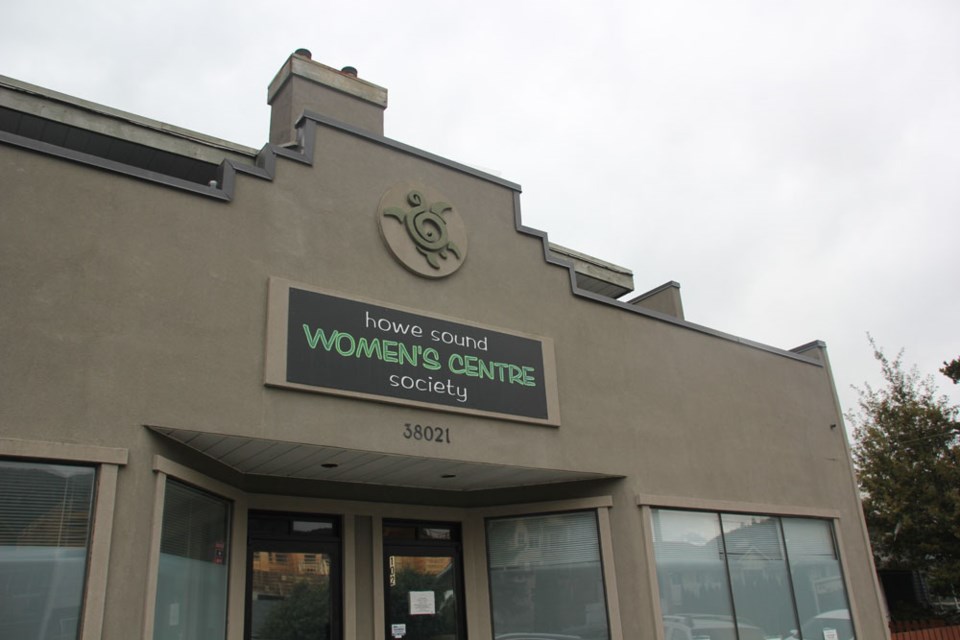After a sexual assault, people in the Sea to Sky Corridor no longer have to wait for business hours to have access to a forensic exam.
Ashley Oakes, the executive director of the Howe Sound Women's Centre, told The Chief the access is a huge step.
"Some of the things that have come a long way in our corridor that I'm really glad to see are access to 24-hour forensic examination in Squamish and in Whistler, and the ability for the survivors of sexual assault to be able to go and be seen at the hospital and have that forensic examination within their own community rather than having to go to the Lower Mainland or to only be able to have that examination be done during restricted hours," Oakes said.
Previously, the examinations were only available during business hours from Monday through Friday at the Squamish General Hospital. The optional exam, sometimes refered to as a rape kit, collects evidence police can use for an investigation of sexual assault.
In late 2019, forensic examinations became available 24/7 at the Squamish General Hospital on an as-needed basis and from nurses or nurse-practitioners in Squamish and Whistler.
In an email to The Chief, Vancouver Coastal Health spokesperson Carrie Stefanson said, "Additionally, Vancouver Coastal Health is further enhancing services by facilitating training for nurses and nurse-practitioners in Whistler and Squamish to be part of a sexual assault forensics examination team."
The health authority also provides medical and psychosocial health care and support including medication to prevent sexually transmitted illnesses, unplanned pregnancy, and treatment of physical injuries.
"I think it's always important that if a survivor of a sexual assault feels safe enough to do so, that they do a forensic examination," Oakes said. "The evidence of a sexual assault can be held at the hospital for up to a year and longer in some circumstances. Even if that person is not comfortable pursuing any sort of report, that genetic material can be held and protected in case, in the future, that survivor does want to come forward. I also think it's important that people know that there is no limit on the length of time between that assault and a report. A survivor can report details of a sexual assault at any time."
One of the barriers survivors face after a sexual assault, Oakes said, is the lack of trust in the judicial system.
"The conviction rates are quite low for sexual assault," she said. "That lies in difficulty in obtaining the evidence necessary, which could be that the assault took place when the victim was alone or the he-said-she-said scenarios are really difficult to persecute."
The Howe Sound Women Centre also offers third-party reporting for adult victims who wish to remain anonymous.
Co-ordinating a response
Frontline workers and first responders in the Sea to Sky also received training for sexual assault response this month. On March 2 and 3, the first Crosshatch training forum in the area brought together 150 people at the Squamish-Lillooet Cultural Centre.
The Sea to Sky Corridor Sexual Assault Response Committee chose eight to 10 workshops for the training, ranging in topics about cultural competency for first responders supporting Indigenous communities, trans-inclusive policies and practices, and a panel on the judicial process from calling 911 through probation. The workshops also covered the differences between responding to an urban or remote scenario of sexual assault to find gaps and barriers to help. Another panel by the Women Against Violence Against Women (WAVAW) touched on responding to disclosures of sexual assault.
"It's important that anyone who receives a disclosure of sexual assault allows the survivor to determine the next steps for themselves," Oakes said
Attendees included representatives from Vancouver Coastal Health, RCMP, local First Nations, School District 48, Quest University, Sea to Sky Community Services, the MLA's office, and clinical counsellors from Whistler and Squamish.
While it's the first time this training has been offered in the Sea to Sky, Oakes said it is offered in other parts of the province. Travel for a multi-day conference in the city, however, can be a barrier for people to attend. Travel to health care after a sexual assault is also one of the biggest barriers faced in the corridor, she said.
She said there have been requests to make the training forum an annual event, but that will depend on securing funding.
Find more information about local resources at www.hswc.ca.




